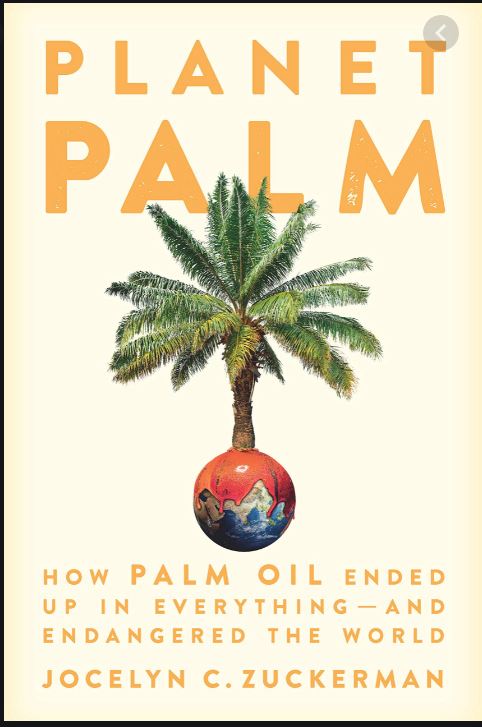Weekend reading: How palm oil ended up in everything we eat
Jocelyn C. Zuckerman. Planet Palm: How Palm Oil Ended Up in Everything—and Endangered the World. The New Press, 2021.

Here’s my blurb for this book:
I’ve always thought of palm oil as just another best-to-avoid food ingredient for its high level of saturated fat, but can never look at it the same way again after reading Planet Fat. I now understand that oil palms represent the darkest underside of late-stage capitalism, responsible as they are for land grabs, forest devastation, peat burning, greenhouse gases, loss of biodiversity and orangutan habitat, junk food, chronic illness, and food insecurity, all accompanied by unthinkable levels of corruption, criminality, and violence: accidents, thievery, arson, and murders. This is an ugly story, compellingly told. It needs to be read.
And here are a few short excerpts.
The first:
In 2019, the World Health Organization compared the tactics used by the palm oil industry to tose employed by the tobacco and alcohol lobbies, no slouches when it comes to playing dirty…Across the globe, those who’ve dared to speak out against the industry, whether laborers, peasant farmers environmental activists, or investigative journalists, often ave been met with violence [p. 17]
With reference to a “technically safeguarded” national park in Indonesia:
The past decade and a half have seen roughly five thousand acres of its park converted to oil-palm plantations. Today, only 4.5 million acres of the ecosystem remain forested. Here as elsewhere in Indonesia, palm oil companies have secured permits through backroom deals with local officials or have simply pad others to clear the land illegally [p. 116]
One reason for concern:
While it’s true that many of the world’s people could use more calories…the global glut of palm oil is in fact diminishing food security, in a fairly drastic way. It’s common to blame sugar for the world’s weight problems, but in the last half-century, refined vegetable oils have added far more calories to the global diet than has any other food group. Between 1961 and 2009, for example, the availability of palm oil worldwide went up a staggering 206 percent [p. 162]

